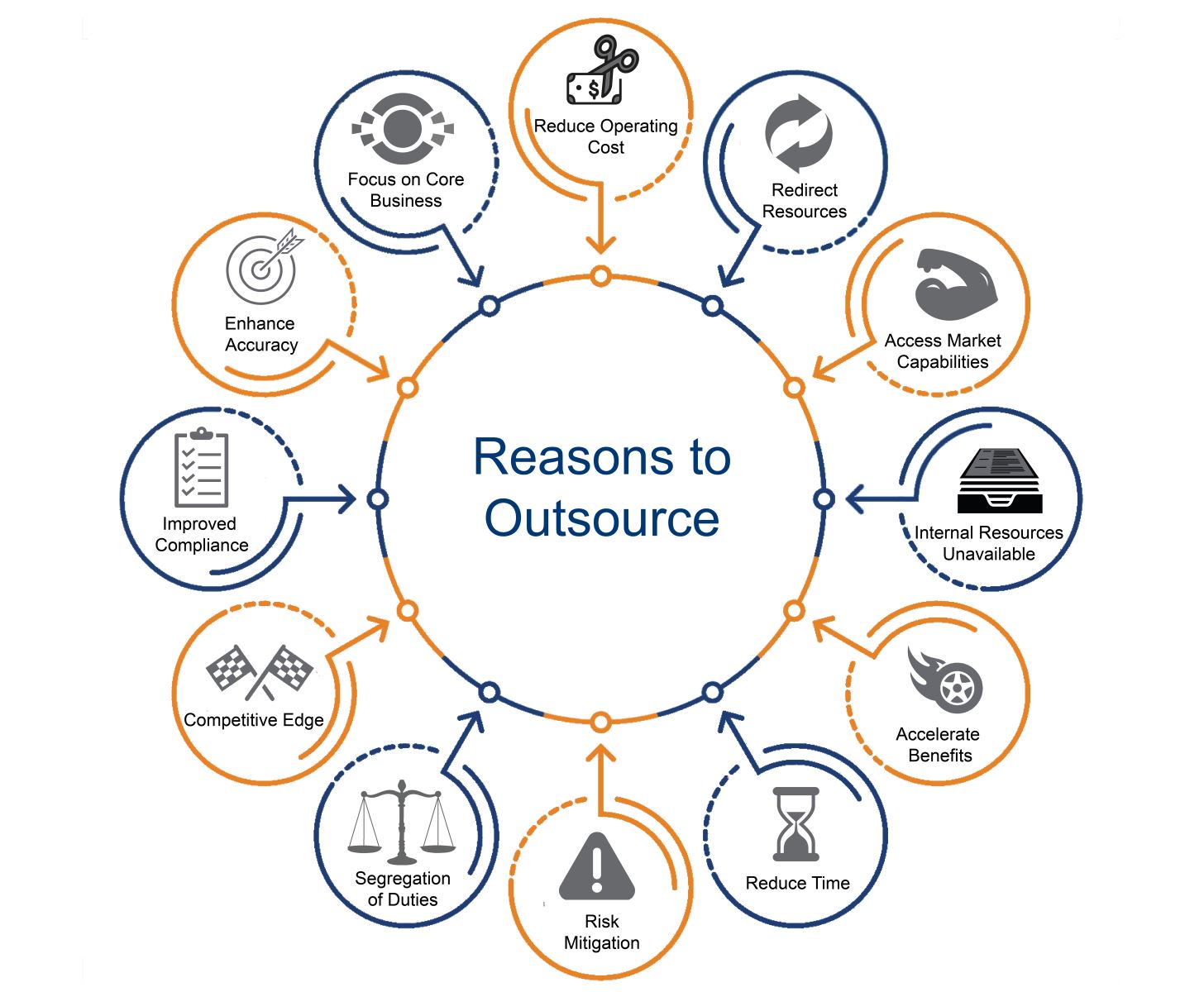
Organisations that are considering outsourcing need to weigh the pros and cons before committing, but also to understand just what they’re signing up for. Eugene LaFontaine of Frontier Software explains to HRD what businesses need to know

In line with a global trend, the number of organisations outsourcing their payroll services is increasing year-on-year. The Australian Payroll Association (APA) 2019 Payroll Benchmarking Report supports this trend. “Outsourced payrolls make up 32.5% of survey respondents, which is an increase from 2018 when outsourced payrolls made up 24.7% of survey respondents,” the report says.
Dispelling a commonly held notion that outsourced payroll suits organisations with a certain number of employees, the survey showed a consistent outsourced percentage across all ranges of total employee numbers. So, if workforce size is not always a determining factor, what might influence an organisation to outsource its payroll?
Eugene LaFontaine, national managed services operations manager at Frontier Software, consistently sees three common drivers in this area.
“Clients opting to use Frontier Software’s payroll services do so because of concerns about their internal payroll knowledge and capability, a desire to be compliant and an intention to mitigate the associated risks,” says LaFontaine.
Lack of knowledge
Australian payroll is complex. Depending on the industry in which an organisation operates, it can be subject to modern awards, EBAs, taxation, superannuation or reporting obligations. Internal teams require an in-depth understanding of the payroll landscape they inhabit.
“Such knowledge comes at a cost, in terms of both training and lost time, and employees must maintain currency,” says LaFontaine.
“For many businesses, payroll is seen as a necessary function, but not core business.”
Risk mitigation
Single-point sensitivity is a concern for many organisations that would struggle if they lost the knowledge held by one or two key staff to turnover, retirement or signifi cant illness. Many organisations also seek to segregate payroll duties to help mitigate the potential for fraudulent activity.
Compliance and cost-effectiveness
Knowing you can configure your payroll system to accommodate awards or agreements is one thing, but you must also be certain that your payroll practitioner can actually do it. The advent of SuperStream and Single Touch Payroll (STP) required vendors to develop functionality to achieve compliance, but the payroll team also need to know how to correctly implement the new functionality. Organisations not using compliant payroll technology risk breaching regulations and suffering both financial penalties and reputational damage.
“Organisations considering outsourcing seek to reduce the overall cost of the payroll function,” says LaFontaine. “A common measure is the cost per payslip and takes into account all the direct and indirect costs of producing a payslip, per employee.”
According to the APA, the average cost per payslip generated for employers with 50 to 200 employees is about $32. But even that may not take into account all of the associated costs that, when overlooked, can make outsourcing look like an expensive option. These include additional support by internal IT resources, ongoing training costs, payroll department staff turnover, etc.
Weighing the options
When investigating outsourcing as an option, businesses must consider both the gains and potential risks involved, notes LaFontaine.
“Managing a payroll in-house requires investment in payroll expertise, payroll technology and training,” he says. “It requires dedicated resources that are a salary and on-cost to the business.”

The potential for single-point sensitivity, where the business relies on one or two individuals for their expertise, must also not be overlooked. In contrast, an internal payroll team can act more quickly than an external one that is servicing numerous different clients. They can be more responsive to immediate requirements and are able to generate data insights that inform business strategy. Insight generation has the capacity to add signifi cant value to the payroll function and organisation.
Outsourcing reduces the overall cost of the payroll function and makes it a predictable expense. Savings can be realised by not paying for software, staff , maintenance and training.
As La Fontaine explains, “Outsourcing payroll mitigates the risk of staff turnover because the payroll services provider has many team members able to process client payrolls. As vendors, we must ensure compliance with statutory regulations and the fulfi lment of award and EBA conditions. Our role is to ensure our clients are not at risk of penalty for non-compliance”.
Good outsourcing vendors will have demonstrable experience in implementing complex awards and understand how best to confi gure their system to meet the terms and requirements of an agreement. However, they may be less responsive than an internal employee in generating insights, mostly because they act on client instructions. An internal employee is more likely to undertake what-if analyses and reporting in order to demonstrate the value of the payroll function. Great outsourcing providers will offer their clients a means to access and report on their own data.
Ultimately, the decision to outsource payroll will be driven by the organisation’s appetite for risk and an internal assessment as to the cost versus value of retaining an in-house payroll team over an outsourced one. Crucial to the decision is an understanding of what outsourcing actually involves.
Under an outsourcing agreement, the physical effort of processing your payroll is made by an external provider using its technology platform. Often prospective clients therefore view outsourcing almost as an abdication of their responsibility.
However, LaFontaine says, “That is incorrect. Your outsourcing provider may offer various levels of service, ranging from very basic support right up to assuming the entire responsibility for your payroll function, but they will only act on the instruction of their client. That means the client is always in control, unless the instruction is somehow illegal, in which case we will not proceed. Clients must realise that the responsibility for payments made on their behalf resides squarely with them.”
One such liability is data security. There is a saying in IT circles that “it is not a matter of if an attempt to breach your data will occur but when”. No vendor can guarantee the security of your data, but there is a great deal they can do to offer it the best possible protection. From ISO accreditations to database protection, fi rewalls and redundancy plans, much can be done to make the job of breaching data very difficult for nefarious players.
“Prospective clients must involve their own IT teams in vigorously assessing the capability of any vendor to protect their critical employee data,” LaFontaine says. “If your payroll is processed offshore, there are other considerations, not the least of which is data sovereignty and the ease by which you may access your own data. Any vendor processing offshore may do so at a lesser cost, but you must check their data security controls to ensure your data is as safe as it would be if processed onshore.”
Payroll outsourcing is a viable option for many organisations, big and small. When deciding on outsourcing, consider elements such as cost, your appetite for risk, and your desire to extract insights from payroll data. Most importantly, consider whether the potential vendor can ensure they have proven data security measures, flexible options for client involvement and a capacity to give you unfettered access to your own data. After all, you may have outsourced payroll processing, but not your responsibility.
 Eugene LaFontaine joined Frontier Software in April 2008 with over 25 years’ experience in HR and industrial relations in the private and public sectors. He has previously worked for Amcor, Linfox, National Foods and, more recently, Tenix as HR shared services manager. In addition to his management roles, LaFontaine has been the HR and payroll project lead for SAP, PeopleSoft and chris21 implementation. He also has experience in the development of shared services groups for HR and payroll.
Eugene LaFontaine joined Frontier Software in April 2008 with over 25 years’ experience in HR and industrial relations in the private and public sectors. He has previously worked for Amcor, Linfox, National Foods and, more recently, Tenix as HR shared services manager. In addition to his management roles, LaFontaine has been the HR and payroll project lead for SAP, PeopleSoft and chris21 implementation. He also has experience in the development of shared services groups for HR and payroll.
LaFontaine is a member of the Frontier Software management leadership team and is responsible for delivery of the organisation’s managed services solution
To find out more about Frontier Software, visit www.frontiersoftware.com.